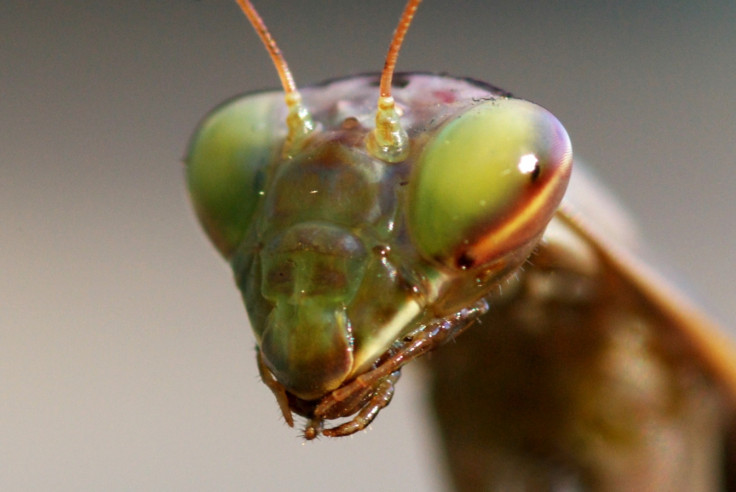The 'smell of death' can drive species to extinction
The finding sheds light on a long-standing scientific puzzle known as the Allee effect.

The intense fear of predators can be enough to send a species' population crashing towards extinction, a new study finds.
Exposing flies to the terrifying scent of the praying mantis put populations of fruit flies at an up to sevenfold risk of extinction, finds the study in the Proceedings of the Royal Society B. The flies who were exposed to the scent of the praying mantis spent less time eating and having sex, and more time on the lookout.
"It has been something of a mystery why predators are so important in animal extinctions," said study author Kyle Elliott of McGill University in a statement.
"As prey populations decline, predators should simply switch to other prey."
But if scent is enough to keep the prey population in decline, then moving on to other prey won't make a big difference. The decrease in numbers and ability to mate and have offspring will already have been "critically affected by the passing smell of death", Elliott said.
The effect was most pronounced among small populations, they found, suggesting that below a certain threshold size, the effects of fear alone can drive a group to extinction.
The finding sheds light on a long-standing scientific puzzle known as the Allee effect. This is the unusually poor survival rates of organisms in very small populations. In medium-sized groups, organisms often fare well as there is not too much competition for resources such as space and food. In very large populations, the competition is much more intense, so survival rates decline.
One might expect that in very small groups, the abundance of resources would lead to higher results. But it doesn't, giving rise to the Allee effect.
"When scientists set out to look for the causes of the Allee effect in the past, they have tended to focus on intrinsic parameters, such as the difficulty finding a mate, inbreeding or social dysfunction in small populations," said Elliott.
"Fear caused flies to spend less time eating, more time being vigilant, have less sex, and produce fewer offspring. We suggest that the fear effects become more pronounced as population size declines and lead to reduced resilience in small populations and an increased likelihood of extinction."
© Copyright IBTimes 2025. All rights reserved.





















